Duncan MacDonald
Jakarta 21 September 2016
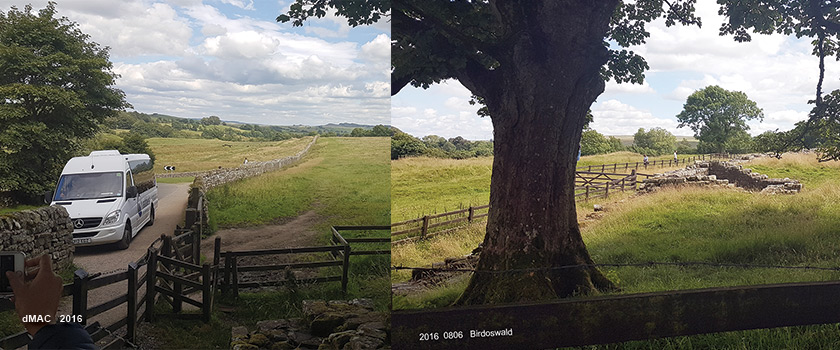
Rabbies Tour bus at Birdoswald - Birdoswald Roman Fort
To the west of the river Irthing, Hadrian's Wall was first built of turf. In this sector the regular fortlets known as milecastles were built of turf and timber, while the turrets between them were built of stone. The fort was built astride the Wall. The stone fort at 2.14 hectares was one of the larger forts on Hadrian's Wall. After the fort walls were finished (sometime before AD 138) the first five miles of turf Wall were rebuilt in stone.
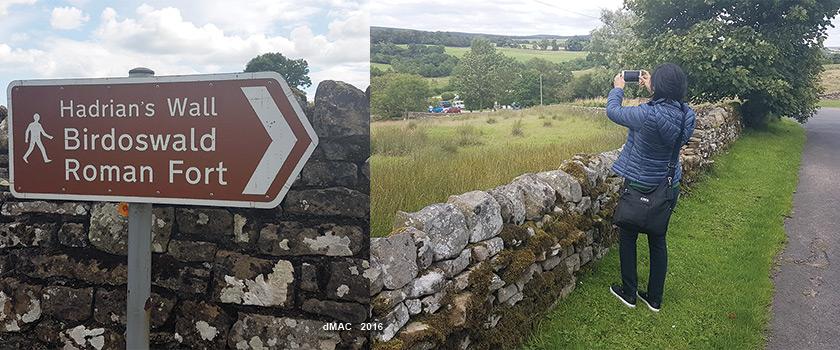
to Birdoswald Roman Fort Shinta
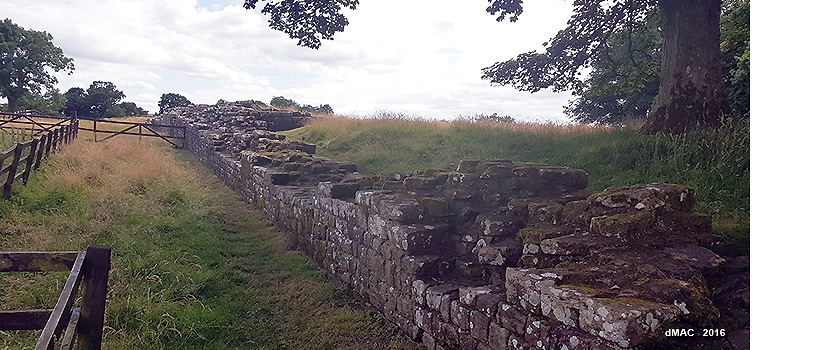
Birdoswald Fort
One of the more important recent discoveries on Hadrian's Wall is that Birdoswald continued to be occupied beyond the end of Roman Britain in AD 409. Some of the best evidence of this comes from the reused Roman graineries, a series of hall-type buildings. It is clear from the latest archialogical research, that its occupation continued without a break from the late Roman period, marking a radical change in the life of the fort after the collapse of the Roman administration and economy. The Roman military unit, already subject to late Roman local recruitment and hereditary service, perhaps became more a local war band, possibly even a small local chiefdom, whose members woud have continued to regard themselves as 'Roman'.
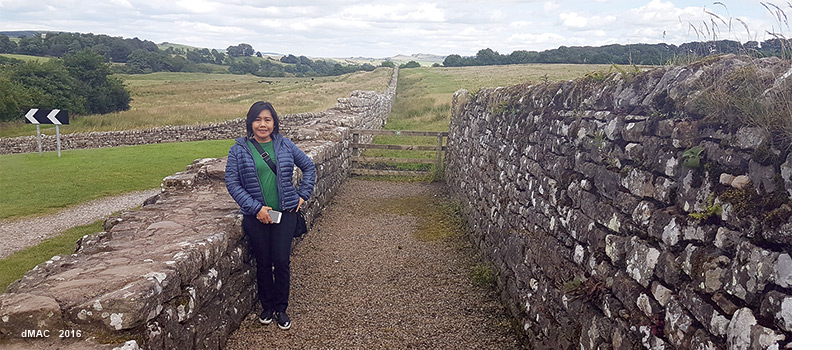
Shinta Hadrian's Wall
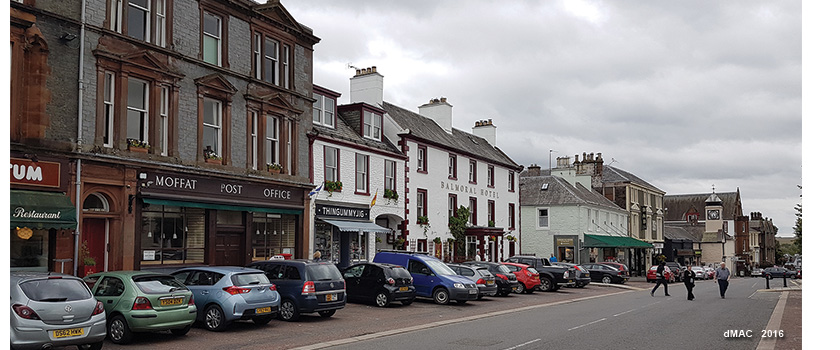
Moffat main street
Moffat in Scotland, lies on the river Annan and has a population of around 2,500. It was a centre of the wool trade and a spa town.
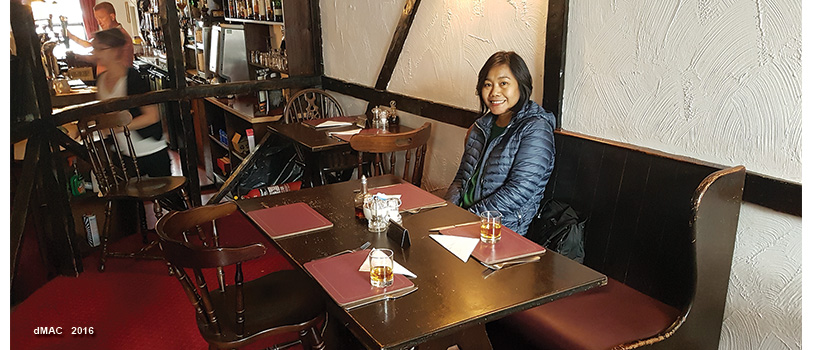
Shinta Balmoral Hotel Moffat
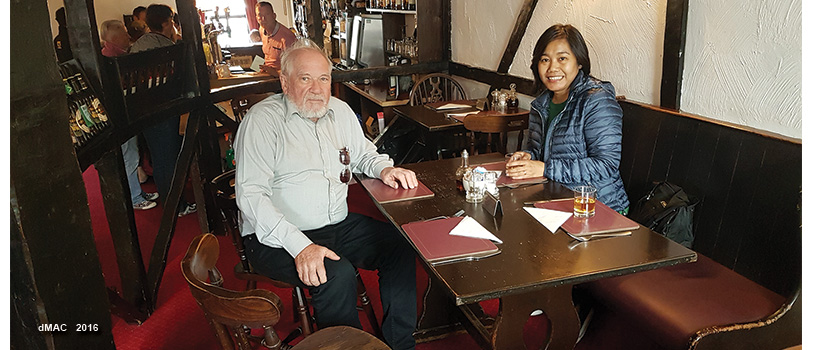
Frank and Shinta enjoying a wee dram
Dram comes from Scottish Gaelic - the literal meaning in English is simply 'drink' , although it's normally used to indicate whisky or spirits
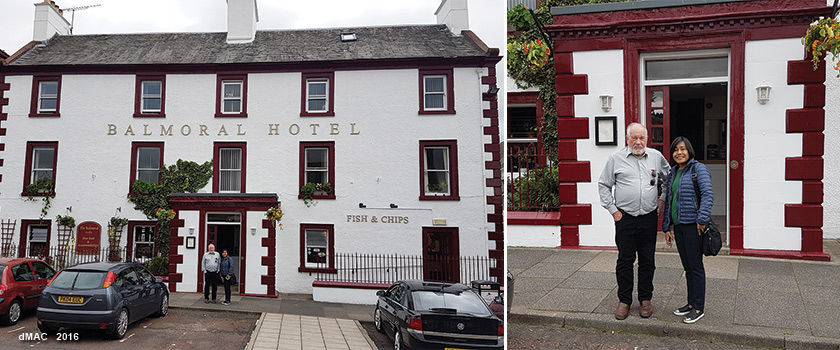
Frank and Shinta outside the Balmoral Hotel
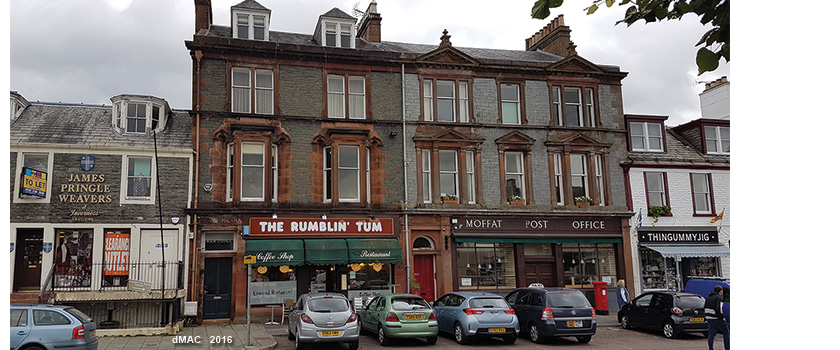
Moffat
Moffat (Scottish Gaelic: Am Magh Fada, 'The Long Plain')
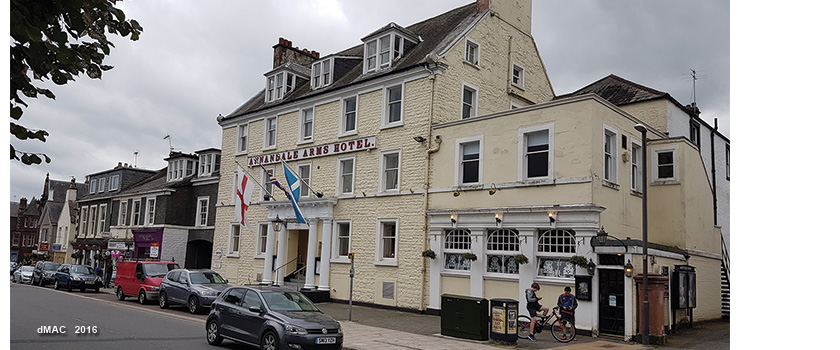
Annandale Arms Hotel was recently awarded the 4 stars by Food Review Scotland
